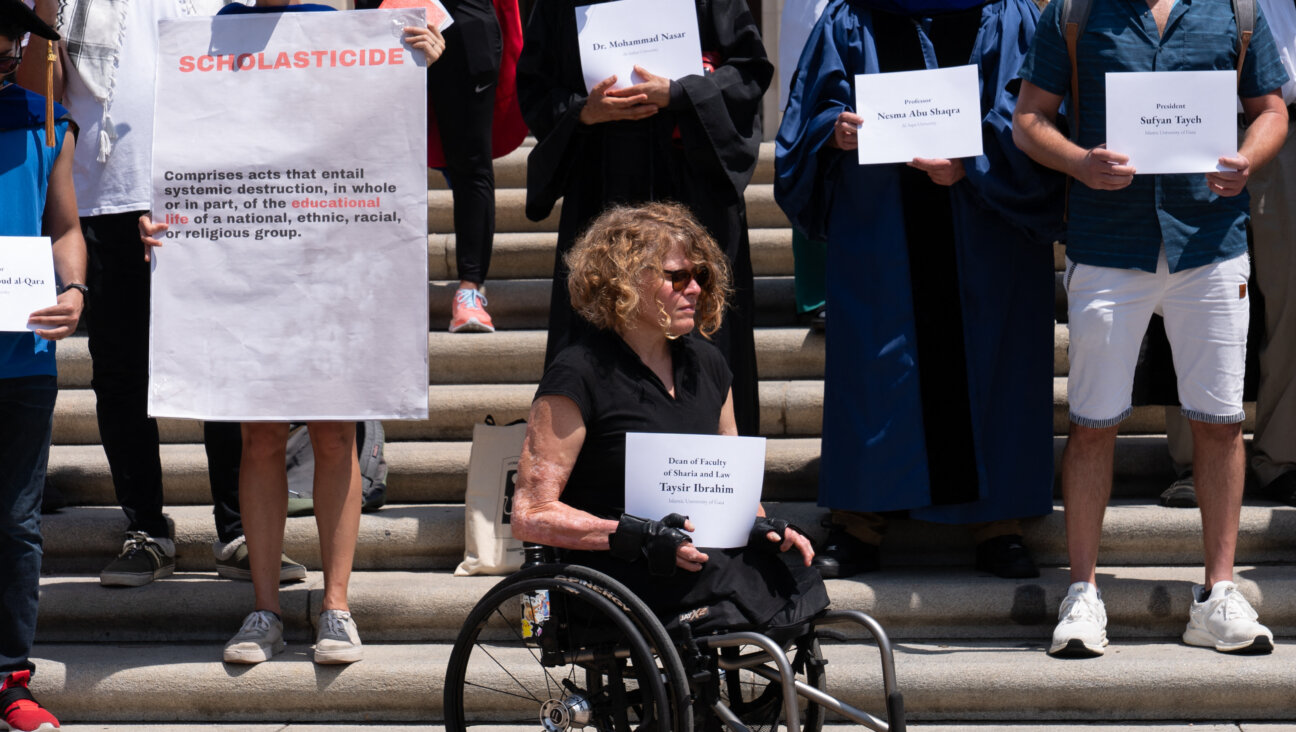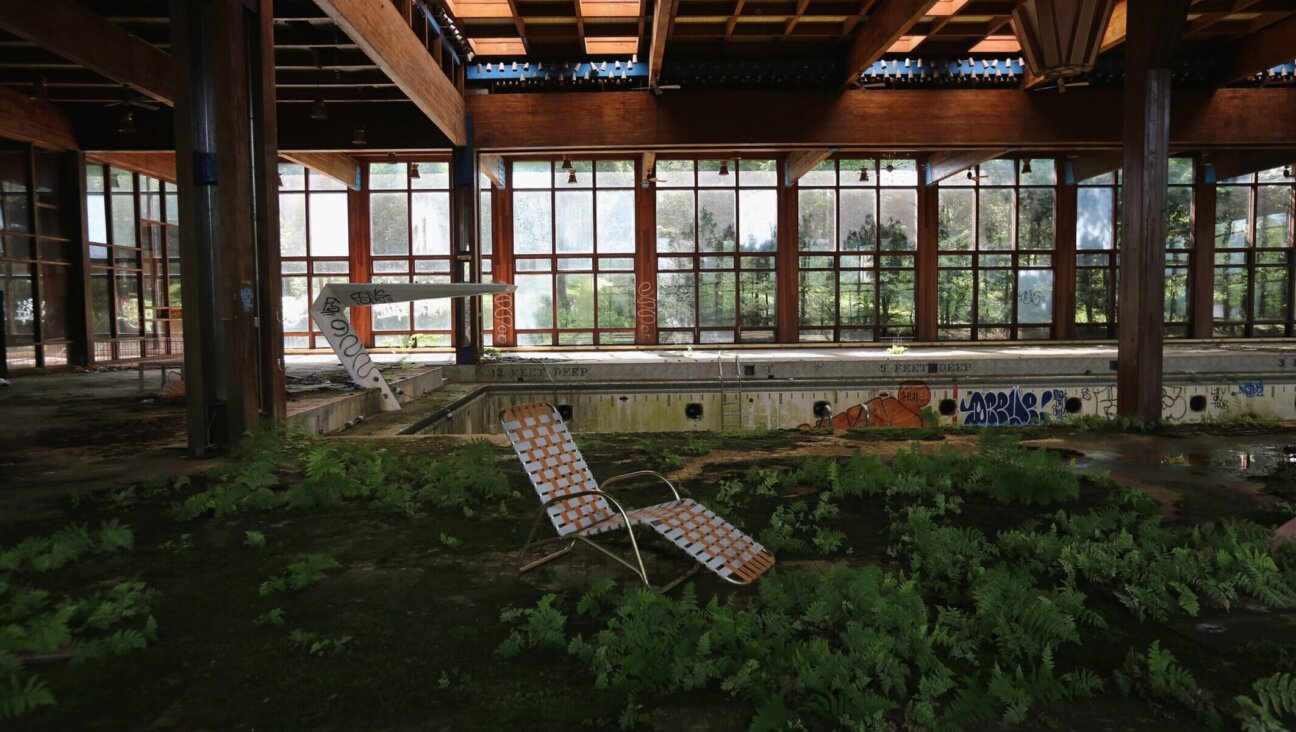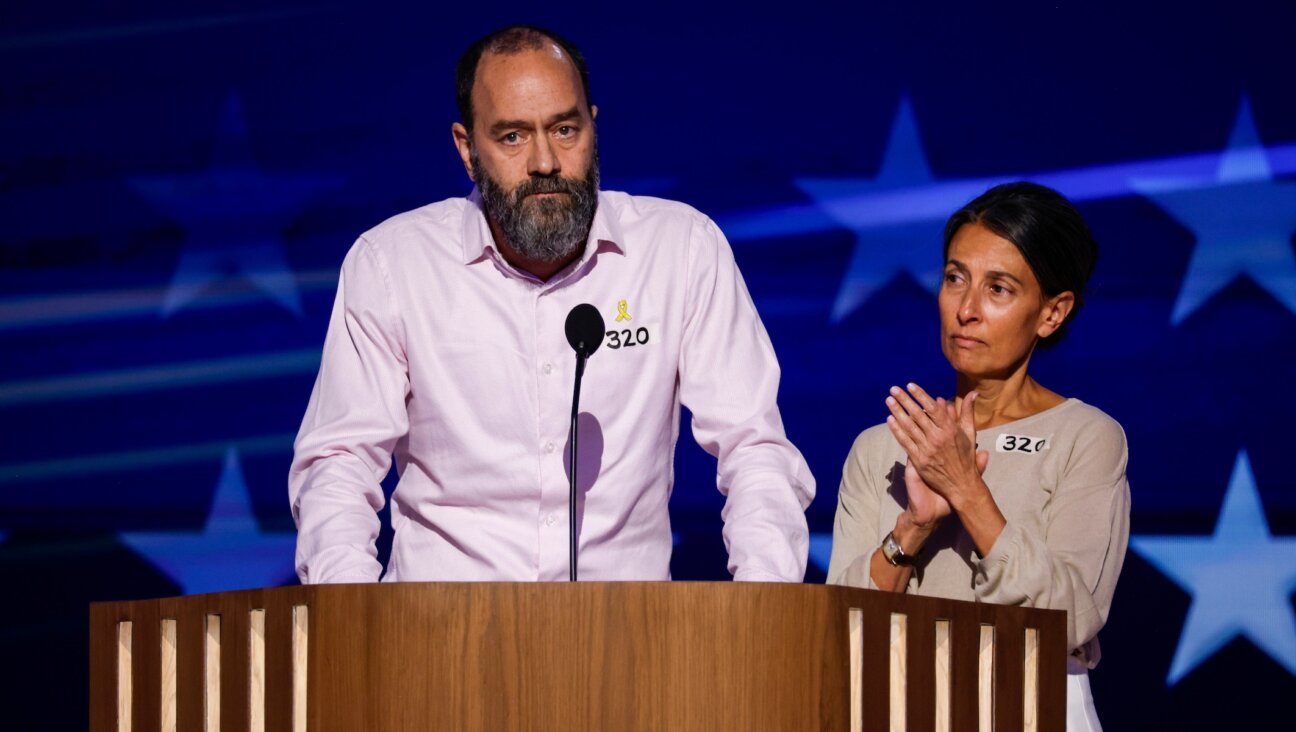This Hanukkah Version of a Gingerbread House Annoys Me Like Nothing Else

Like almost every other Jewish Holiday, Hanukkah is a celebration of the fact that non-Jews tried to destroy Jews, but they failed. Also: Let’s eat! At its core, Hanukkah is about a fight against total Jewish assimilation into the prevailing culture of the day.
So how do American Jews celebrate this festival that commemorates our victory over assimilation? Well, because the holiday happens to fall during the same time as the Christian holiday of Christmas, we’ve Christmas-ized it. We wrap presents and insist on menorahs being placed alongside Christmas trees, some of which even have Hanukkah ornaments and tree toppers in interfaith families. Most religious Jews scoff at these overt appropriations of Christmas in Jewish homes, and yet the Christmasization of Hanukkah has seeped even into Orthodox homes.
If you take a stroll down the kosher aisle in many supermarkets in the month of December, you might find a surprise from a famous institution in the Jewish culinary world: Manischewitz. For the past several years, it has marketed a do-it-yourself “Chanukah House Decorating Kit.” It’s basically a blue version of a gingerbread house. Don’t worry, at least it’s kosher.
I get that it’s easy this time of year for kids and adults alike to feel left out of all the Christmas hullabaloo. But to pretend that a blue house made out of gingerbread isn’t cultural appropriation at its finest is a farce. While the house might be kosher according to Jewish dietary laws, it is anything but when it comes to the spirit of the holiday, which, again, is a cautionary tale against assimilation.
For a quick refresher, here’s how the Chabad website tells the story of Hanukkah:
Added to the troubles from the outside were the grave perils that threatened Judaism from within. The influence of the Hellenists (people who accepted idol-worship and the Syrian way of life) was increasing. Yochanan, the High Priest, foresaw the danger to Judaism from the penetration of Syrian-Greek influence into the Holy Land. For, in contrast to the ideal of outward beauty held by the Greeks and Syrians, Judaism emphasizes truth and moral purity, as commanded by God in the holy Torah. The Jewish people could never give up their faith in God and accept the idol-worship of the Syrians. Yochanan was therefore opposed to any attempt on the part of the Jewish Hellenists to introduce Greek and Syrian customs into the land.
So, please, if you’re really dying to make something edible to celebrate the holiday, try some sufganiyot (donuts) or latkes. You can even try your hand at making a chocolate menorah or a dreidel crafted out of graham crackers. But for the love of Hanukkah: Leave the edible decoratable homes to the non-Jews!
Bethany Mandel writes on politics and culture, usually from a conservative perspective. Follow her on Twitter @BethanyShondark
A message from our Publisher & CEO Rachel Fishman Feddersen

I hope you appreciated this article. Before you go, I’d like to ask you to please support the Forward’s award-winning, nonprofit journalism so that we can be prepared for whatever news 2025 brings.
At a time when other newsrooms are closing or cutting back, the Forward has removed its paywall and invested additional resources to report on the ground from Israel and around the U.S. on the impact of the war, rising antisemitism and polarized discourse.
Readers like you make it all possible. Support our work by becoming a Forward Member and connect with our journalism and your community.
— Rachel Fishman Feddersen, Publisher and CEO























